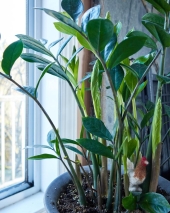




r ranson wrote:It looks like my machine wants something called rinse aid. Why? Is it necessary?
How about tis for hard water?
ajmot Hatfield wrote:Some people call it agroecology. I often say "applied ecology" -- but it's more broad than the common understanding of "ecology", including geology, industrial metabolisms, architecture, etc etc. Mollison called it the first "design science" -- and that's probably what it is -- a growing catch-all syllabus of the best strategies for ecological and industrial design.
I would characterize it as "guerrilla economics and amateur science" along the lines of Paul Hawken and Paul Stamets -- because people seem to be fixated on the gardening and homesteading aspects too much, which Mollison spent relatively little time speaking about during his early PDC lectures. He was trying to spread the word about much hardier human systems than a simple western home and garden -- like Commonwork in the UK or Mondragon in the Basque, setting up resilient landholding and business ventures, avoiding taxation for war and building up infrastructure among the impoverished beneath the noses of ineffectual charities and bureaucracies and tyrannies.
Allan Savory came to a similar set of systems, which he calls "holistic management" -- a bit more focused on large land systems, so doesn't cover the same ground as permaculture in detail, but really they are the same thing in outline. Christopher Alexander came to probably the more cosmic rules underlying the holistic design sciences -- and he usually just calls that vitality, aliveness, or "life"!

Anthony Powell wrote:
Vili Doll wrote:
This sounds like a carbon offsetting scheme. You pay your money, someone goes planting trees or something - to bury carbon. While you continue polluting...
The science says there's too much CO2 in the atmosphere, so we need to bury it and NOT create more. So everyone suggesting ways to cut their emissions are on the right track.
Basically, it comes down to philosophies:
*Share - tools, houses, vehicles, public facilities, natural resources
*Care - for people, nature, everything you or others value
*Link - let every action satisfy more than one purpose if you can
*Enjoy - what comes your way, rather than striving for the hard to get (unless you love hard work and banging your head against brick walls). Why take a handsome salary that requires you so spend half of it commuting, eating into home-time, and producing CO2 and other pollutants? We have brains to work out how to make the best of our situations.
This really sums up all the contributions that were made by the previous replies. I think a lot of things were covered in this forum, at least the most important ones. One thing that is important to mention as well is the fact that the "carbon footprint", at least in the individual level, is a term that does not make much sense. It was crated by an oil company to deviate our attention from the actually huge damage that multinational companies create and governments support. Although we can, and should, strive as individuals to have a lesser impact on the planet, the most impactful changes can be made by these huge entities, and should not be just thrown on consumers to make them feel guilty. I know of a climate scientist on youtube who explains this (and more) in a very fun and accessible way. On this specific topic, you should watch this video of his: https://youtu.be/1J9LOqiXdpE?si=dnuVl9ltZZPs90Ac
If you like his crazyness like I do, you're free to explore his channel further. If not, I also recommend many other awesome youtube creators who are scientist that give their own advices and information, like the channel "Not just bikes", "Our Changing Climate", "Sabine Hossenfelder", "ClimateAdam", etc. (there are the names that come right to my head, but there are many others).
Good luck on your journey and don't be too hard on yourself, fellow earthling!

r ranson wrote:I love getting big art books out from the library and looking at all the pretty paintings. But you got to know who (or what movement) we are looking for to put the book on hold. I've run out of artists I know the name.
Can you help me out? Who's your favourite?


G Freden wrote:Last summer I found an unknown tree seedling growing in one of my beds; it looked kind of like a laurel, which we have at the back, but not quite. Since I didn't want a tree there, I reached down and pulled it out. The whole stem came up, including the seed, and I then realized this tree was growing from an avocado pit. I live in the north of England. Avocado pits, along with the rest of my kitchen scraps, get dumped outside on the beds for the chickens to peck over.
Sadly it died, even though I tried to transplant it into a pot. I think I broke too much of its taproot when I yanked it out. I would have liked to have had the only avocado tree in Yorkshire


